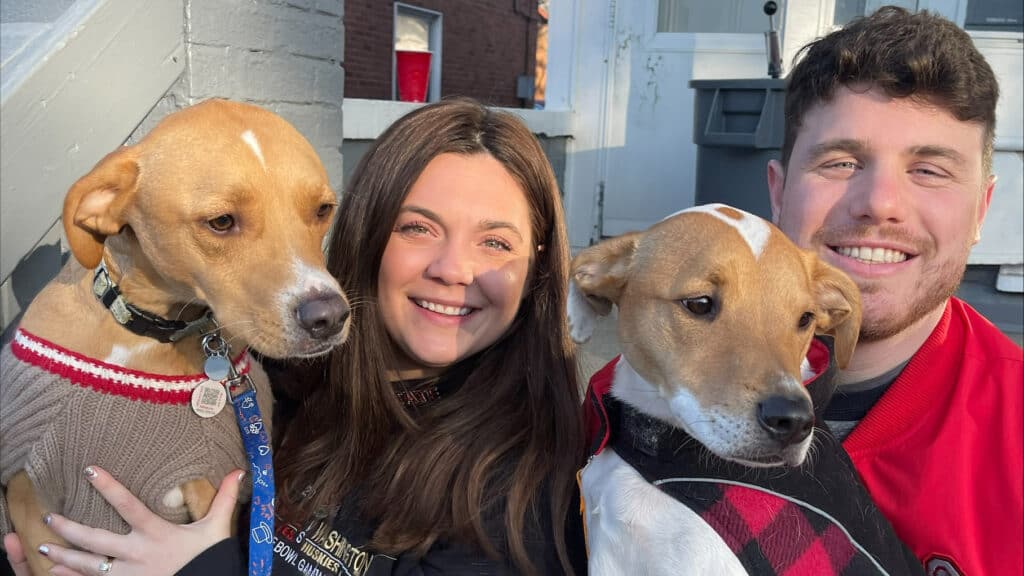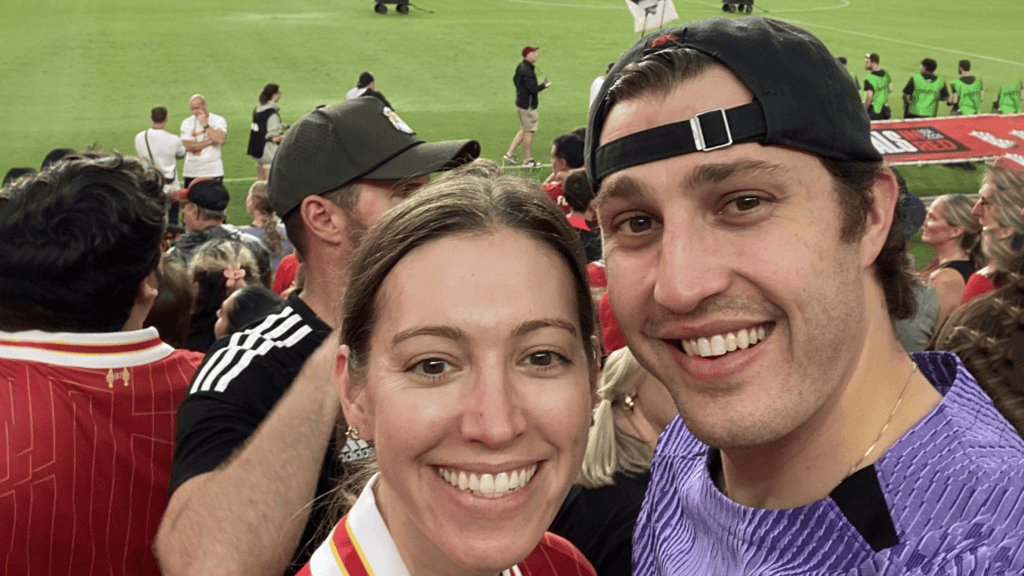Drs. Eric West and Nolan Farrell, both PGY-5s, serve as the UTHSC-Campbell Clinic Residency Administrative Chiefs. These two physicians are terrific leaders, role models and surgeons. Who are they—and what has Campbell training meant to them?
1. What are your plans after you finish Residency in 2025?
Dr. West: Orthopaedic Spine Fellowship at the University of California San Diego
Dr. Farrell: Orthopedic Trauma Fellowship at University Hospital – Cleveland, Ohio
2. What do you wish you knew in Medical School that you know now?
Dr. West: As you progress through medical training, you gain more responsibility. While medical school might feel like a time where you need to focus on studying, completing research, and exposing yourself to orthopaedics, it is more important to develop good habits regarding making time for yourself and your family. If you don’t have the foundation for taking care of yourself while completing medical school, it will be nearly impossible to create that foundation in residency or after.
Dr. Farrell: Enjoy the process along the way. A lot of focus is on getting to the next step, but there will always be the next thing.
3. Describe an experience with an attending that has given you unique insight on practicing medicine and/ or patient care?
Dr. West: Everyone who has trained at Campbell Clinic knows about Dr. Calandruccio’s clinic and the impressive number of gifts/treats he gets from his patients. Once I experienced his clinic for myself, I quickly realized why. Dr. Cal does a phenomenal job at creating an environment that his patients appreciate from start to finish. It made me realize how much they notice the small things that often go overlooked in a busy clinic setting. With the things I learned during my time with Dr. Cal, I hope to recreate a similar setting at my future practice.
Dr. Farrell: Our trauma attendings, Drs. Rudloff, Weinlein, Beebe, and Cosgrove, provide great insight into treating patients throughout our training at Campbell Clinic. The complexity of pathology at our trauma center requires personalization of care to maximize patient outcomes. Each has taught us how to see the entire clinical picture, and formalize a plan, which is can be carried across all specialties.
4. What would you like applicants to know about the Campbell Clinic training and experience?
Dr. West: Campbell Clinic is one of the best places to train as a physical learner. We spend a lot of time on trauma rotations that provide a level of operative autonomy only seen at a handful of programs around the country. I feel like that experience has been invaluable in my development as an orthopaedic surgeon. We also spend half of our residency in a private practice setting that helps create a well-rounded surgeon. Additionally, it allows you to see and learn the business aspects of medicine that will ease your transition from resident to attending.
Dr. Farrell: Campbell Clinic provides an ability to get the most out of surgical training, with a particularly high level of autonomy. It remains a work hard program, with call requirements throughout the entirety of your training. However, it will prepare you to face challenges in fellowship and as an attending. Here you gain broader and deeper experience with hands-on training and clinical decision-making.
Keep up with the Campbell Clinic Residency Program at www.CampbellResidency.com or on Instagram at @ccorthoresidency!

